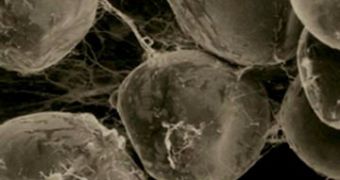Scientists discovered that the antioxidant melanin, which normally generates eye and skin color, is somehow involved in developing obesity. Analyses found increased quantities of the substance being produced in fat cells pertaining to the bodies of people suffering from obesity. Doctors say that drugs mimicking the effects of the natural antioxidant are readily available in stores and are also FDA approved.
While melanin doesn't cure the disease, what it does is help the immune system in fighting against invaders and the onset of several, possibly dangerous diseases. Seeing how obese people are more predisposed to developing heart and circulatory system afflictions, an aid in preventing such occurrences would be welcomed, especially now that Thanksgiving is nearing.
"Most scientific efforts aim at making obese individuals lose weight, but this has proven difficult. Hopefully, this study will lead to a drug that keeps obese individuals healthy, reducing the cost-burden to society as well as some of the stigma associated with this condition," said George Mason University researcher Ancha Baranova, who is also working from the INOVA Fairfax Hospital.
The scientists behind the current study said that the gene that regulates the production of melanin is working overtime towards accelerating the production of this substance. As of yet, scientists have no idea as to why this happens, but some say that it could be an innate defense mechanism against various obesity complications, such as type II diabetes, stroke, sleep apnea and osteoarthritis.
"No pill can replace a healthy diet and exercise, yet, but this could be a major advance for physicians looking for a safe drug target in their search to keep obese patients healthy while their weight becomes normal," added FASEB Journal editor Gerald Weissmann, MD, referring to the delaying effects that melanin has on preventing diseases from infecting obese patients. The FDA still has to approve some clinical trials though, before the melanin-mimicking substances can be sold over-the-counter.

 14 DAY TRIAL //
14 DAY TRIAL //